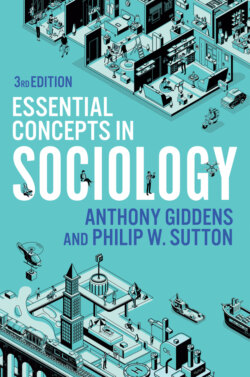Читать книгу Essential Concepts in Sociology - Anthony Giddens - Страница 40
Continuing Relevance
ОглавлениеGiven the rise of critical postmodern ideas in the mid-1980s, Weber’s rationalization thesis may appear outmoded, as trust in science has been eroded and a certain ‘re-enchantment’ of the world seems to be growing (Gane 2002). However, some important studies have been influential in extending and modernizing Weber’s original ideas. Zygmunt Bauman’s Modernity and the Holocaust (1989) rejects arguments suggesting that Nazi policy and implementation of the mass murder of Jewish populations in Europe was an essentially ‘uncivilized’ aberration from the progressive direction of modernity. Instead, Bauman shows that the Holocaust could not have taken place without the rational, bureaucratic administration that organized transportation and record-keeping or the rational actions of the perpetrators and victims. In this sense the rationalization process does not inevitably create a bulwark against barbarism but, given the right context, is just as likely to facilitate it.
George Ritzer ([1993] 2021) applied the rationalization thesis to contemporary fast-food restaurants. In Weber’s time, the modern bureaucratic office was the ideal-typical vehicle for rationalization, but in the late twentieth century it became the ubiquitous fast-food restaurant, typified by the McDonald’s restaurant chain, with its standardized products, highly efficient service, measurable staff targets and uniform customer experience. Over recent years Ritzer has argued that McDonaldization is not limited to the ‘bricks and mortar world’ of restaurants and material business premises but also extends online. For example, he sees Amazon.com, with its focus on calculability and quantification, its ratings and rankings of products and sellers, and its reliance on algorithms and big data as exemplifying the central characteristics of the McDonaldization process. Like Weber, Ritzer sees this rationalized model producing its own irrationalities in both fast-food and online sales: staff are deskilled or low-skilled, their jobs are routinized and subject to intensive surveillance, the experience for diners is degraded and waste becomes endemic. In the quest to reduce chaos and uncertainty, the ‘McDonaldization’ process generates a new type of rationalized ‘steel-hard cage’.
